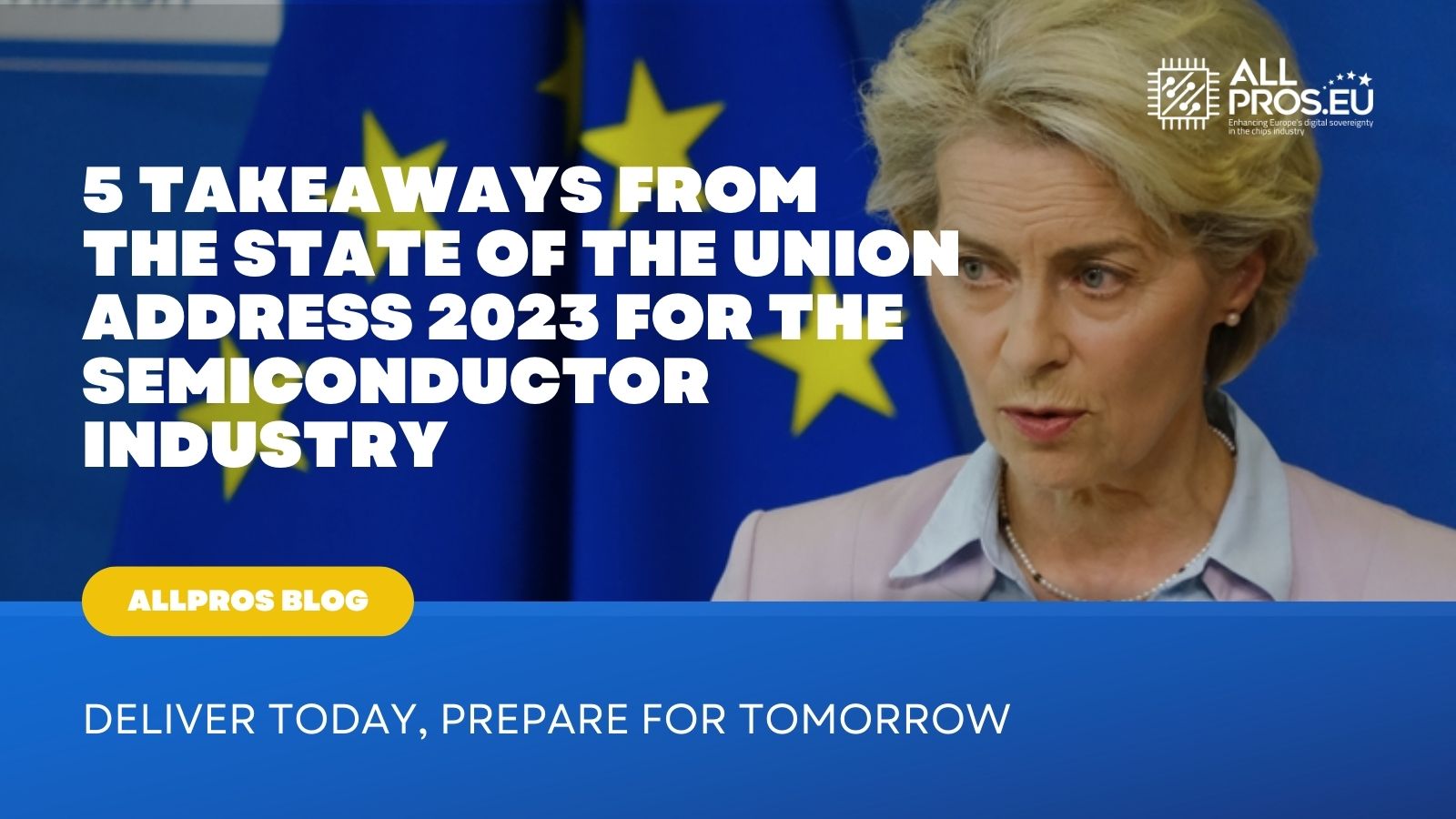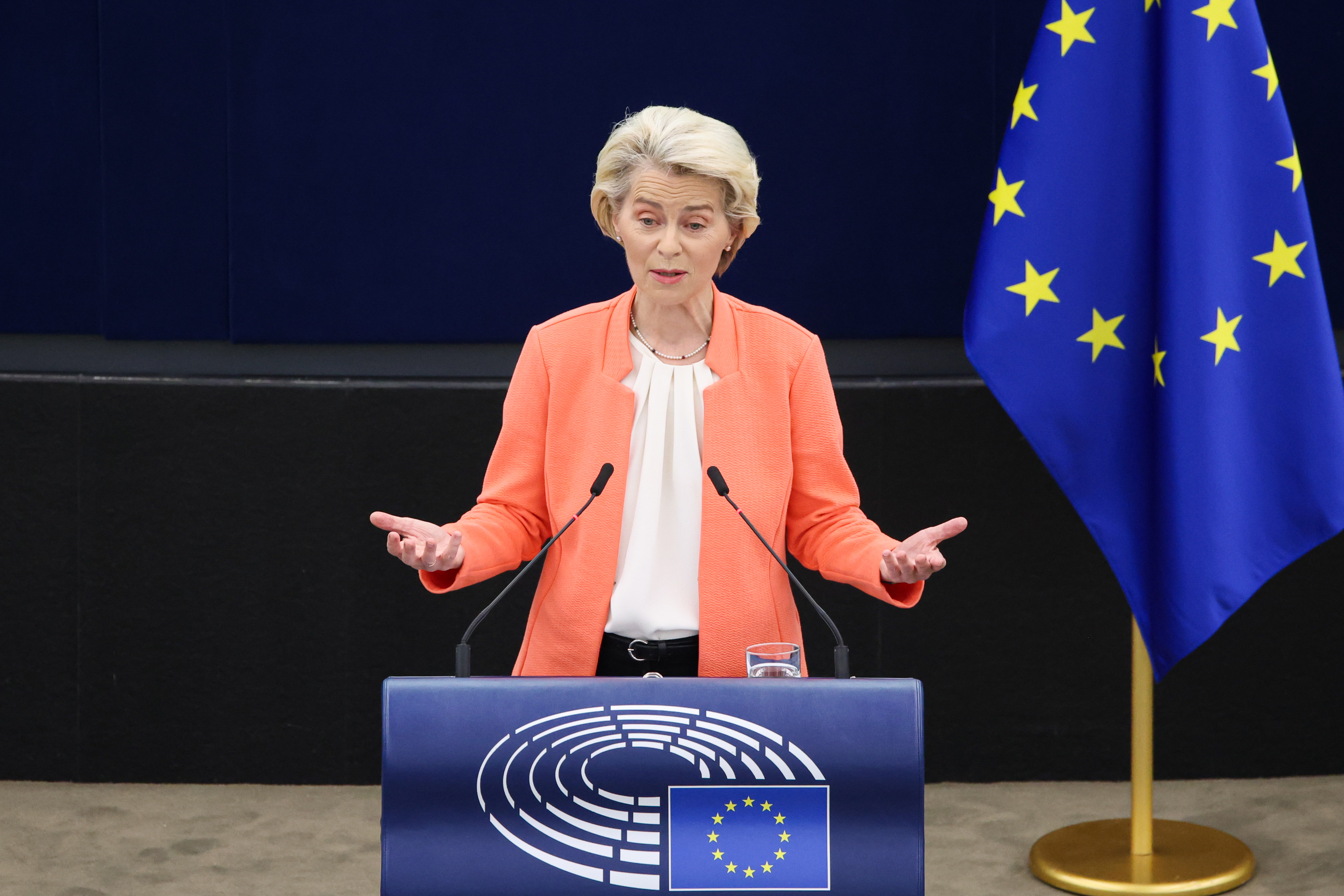
5 Takeaways from the State of the Union Address 2023 for the semiconductor industry
Strasbourg, 13 September 2023 - In today’s State of the Union Address, President Ursula von der Leyen touched upon subjects of substantial relevance for the semiconductor public.
The speech began by underlining the importance of collectively building a better tomorrow through collaboration and exchange with the rest of the world. Nevertheless, independence in critical sectors like energy, chips, or raw materials must not be forgotten.

© European Union, 2023
1. De-risking, not decoupling: towards a fair global competition
The President stressed the importance of manufacturing and competitiveness by specifically mentioning the tech industry. She did so while reminding the importance of fairness in global competition. She recalled how some companies have been victims of predatory practices, undercut by competitors who are benefitting from huge state subsidies. Mention was made of the electric vehicles sector, which has been flooded with cheaper Chinese electric cars whose prices have been kept artificially low by state subsidies. She announced that today the commission is launching an ‘anti-subsidy investigation into electric vehicles coming from China’ claiming that
‘Europe is open for competition, not for a race to the bottom.'
Furthermore, the approach to the EU-China Summit scheduled for later this year was revealed as a De-risking rather than a Decoupling one.
2. New investments in Critical technology - the STEP initiative
The President talked about access to key technologies, defining it as an economic and national security imperative. This has to do thoroughly with European sovereignty, as underlined in the 2022 Versailles declaration. To achieve these industrial goals Europe needs common European funding, which is why the STEP platform - which promises to boost investments in critical technology - has been proposed.
3. The first meeting of the Critical raw Material Club
Mention was made of the restriction of Global Supply Chains by the deliberate policies of some countries. The outcome of these policies has been a supportive and collaborative attitude of key European partners like Japan, Australia, and the United States in tackling the dependency issue. Von der Leyen declared that among the EU partners:
‘Many are overly dependent on a single supplier for critical minerals’
which is why later this year the first meeting of the Critical Raw Materials Club will be summoned, continuing to lead open and fair trade.
4. Connecting policy makers and SMEs to facilitate business making
Another challenge that has been identified is the one for SMEs to do business. An EU SME envoy - in charge of reporting on the various hardships of SMEs - and an independent board - in charge of checking the competitiveness of every new piece of legislation - will soon be instituted. Moreover, von der Leyen publicly announced that she asked Mario Draghi to prepare a report on the future of European competitiveness.
5. Behind every great crisis there are greater opportunities
Talking about shifts and consequent crises, the President reminded the public of the recent shortage of gas and proposed it as an example of opportunity taking. We overcame it by renovating the energy sector and investing in renewables and transition. A model, she argues, we should replicate in other fields such as the one of critical raw materials or clean hydrogen.
The State of the Union Address was concluded by reminding what the role of Europe is, a Union standing next to its people in times of power competition, a protector, a partner, an ally, and an attentive listener. A continent that devolves attention to nature, leading the way to new technologies united by freedom and peace. A continent that is not scared of answering the call of history.